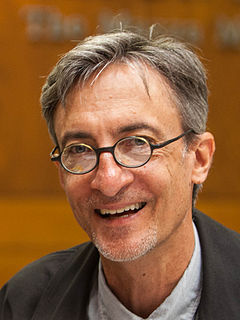A Quote by Tony DiTerlizzi
There are many challenges I face while working on a book. Working within deadlines and schedules is certainly one of the bigger ones for me. I want to create the best possible book I can for my readers with words and pictures - and that takes time to get it just right.
Related Quotes
Don't be afraid to fail. I fail every day. I failed thousands of times writing The Book Thief, and that book now means everything to me. I had many doubts and fears about that book, but some of what I feel are the best ideas in it came to me when I was working away for apparently no result.
Failure has been my best friend as a writer. It tests you, to see if you have what it takes to see it through.
I really try to divorce myself from any thought of possible use of this stuff. That's part of the discipline. My only purpose while I'm working is to try to make interesting photographs, and what to do with them is another act - an alter consideration. Certainly while I'm working, I want them to be as useless as possible.
My husband, William Sutcliffe, the writer, is my first reader and in many ways my most important. That initial reading of the manuscript is crucial and irreplaceable and you want them to approach it as someone in a bookshop might, not knowing much about it. So I've got into this pattern of not telling Will anything about the book I'm working on. He often knows nothing about the book I'm working on at all until I give him the whole manuscript and ask him to read it. The book I'm working on at the moment he knows nothing about. No one does.
Books are just dead words on paper and it is the readers who bring the stories alive. Previously, writers wrote a book and sent it out into the world. A couple of months after publication letters from readers might arrive. And, leaving aside the professional reviews, it is really the reader's opinions that the writer needs. They vote for a book - and a writer - with their hard earned cash every time they go into a bookstore (or online - that's my age showing!) and buy a book.
Writing a book is about me doing the work to get from the obsessive particular to something that reaches out of that in some meaningful way. It doesn't come easy to me. I really admire people who do it with acuity, but I don't, and for me it takes the process of working on a book for years to do any thinking that I feel accomplishes anything. I don't do it off the cuff well.
I read continually and don't understand writers who say they don't read while working on a book. For a start, a book takes me about two years to write, so there's no way I am depriving myself of reading during that time. Another thing is that reading other writers is continually inspiring - reading great writers reminds you how hard you have to work.
A reader is entitled to believe what he or she believes is consonant with the facts of the book. It is not unusual that readers take away something that is spiritually at variance from what I myself experienced. That's not to say readers make up the book they want. We all have to agree on the facts. But readers bring their histories and all sets of longings. A book will pluck the strings of those longings differently among different readers.








































